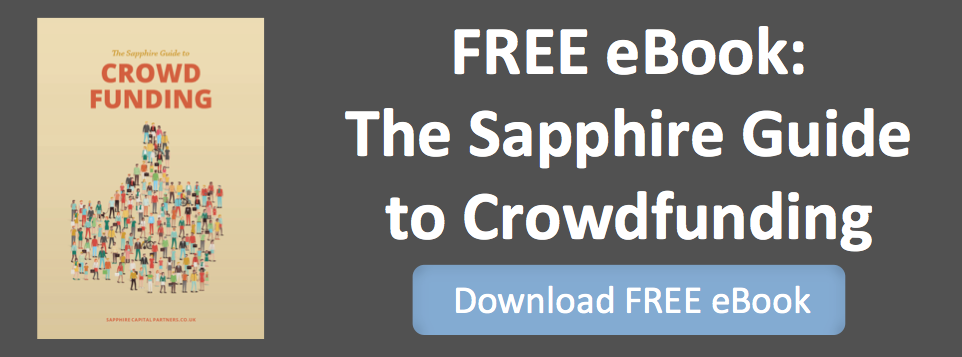 Over the past few years the growth of crowdfunding has been remarkable. It started as a reaction to a decline in bank lending and traditional sources of finance following the credit crunch of 2008. Since then, we have seen Crowdcube raise over £46m from 115,000 members for start up businesses and Peer to Peer lending sites like Funding Circle facilitate over £100m of loans for small and medium sized businesses. The sector that has been slower to approach these alternative sources of finance has been real estate.
Over the past few years the growth of crowdfunding has been remarkable. It started as a reaction to a decline in bank lending and traditional sources of finance following the credit crunch of 2008. Since then, we have seen Crowdcube raise over £46m from 115,000 members for start up businesses and Peer to Peer lending sites like Funding Circle facilitate over £100m of loans for small and medium sized businesses. The sector that has been slower to approach these alternative sources of finance has been real estate.
The ability to source capital for development projects or commercial property investments outside major cities such as central London continues to be very difficult. This is despite the genuine opportunity of excellent financial returns.
As a result, these platforms are trying to fill that void to give investors the opportunity to not only profit from sector but also support this important part of the economy. The platforms that are coming to prominence for this are Property Crowd, Crowdahouse, Crowd Moose, and Fundrise in the US. They are giving the crowd the opportunity to invest in buy-to-lets or other small properties. They are attractive due to the relatively low entry levels, the high rental yields and the potential for capital growth.

Relenedex give investors the opportunity to lend to landlords in the type of asset that institutional and family office investors traditionally have access to. These are commercial properties – offices, retail units and warehouses - that boast long steady incomes from commercial tenants. These types of assets are the anchor of many a pension fund and you only need to read the property and business pages to hear of well known pension funds acquiring shopping centres and office blocks throughout the UK. The argument against participating in Relendex deals might be that you should invest in a REIT (Real Estate Investment Trust) or similar fund as they are well established with experienced fund managers and asset managers. However, what they don’t often give is transparency, so you don’t know where your money has gone; they also don’t have the flexibilty to realise the investment quickly without penalties and the entry level is often prohibitive. It can also be argued that the Relendex and other crowd sites are attracting just as good, if not better, management talent.
An exciting area is mezzanine finance; usually only established funds or family offices offer this type of lending due to the requirement for funds to be available within short timescales. Crowdcube and Seedrs have shown crowdfunding can be secured within days and on some projects hours. This is often the case for start ups with high expectations and seductive promotions but still a very high risk proposition with no clear exit or projected returns. A property deal has both lower risk and clearly defined exit and return. On a crowdfunding platform an investor can see the specifics of the project, the proposed exit strategy and the underlying security. The returns are generally higher with this type of investment as the risk is higher. The strength of this model with a lower entry level is the opportunity to spread risk and create a diversified portfolio.
International markets have often attracted collective investment schemes but sadly people have as many stories of fraud and failed investments as they do successful ones. Crowdfunding platforms’ adherence to regulatory frameworks, transparency on deals and good local legal and professional support give investors the confidence they need to invest. The benefit of such a platform with a customer relationship management system and an effective social media strategy is that an investor will feel part of the crowd and, as such, a valued investor. This will drive further investment in a more cost effective and (arguably) less pressured way than traditional international investment funds.
Like any innovations or market disruptions, the core fundamentals have to be protected. With real estate or property investment these fundamentals are the underlying assets, the demand for them to be either sold or rented, and the management of this process. The crowd can provide the capital to allow this to happen. The providers have to manage this capital to ensure that the project is completed and everyone receives the returns they are entitled if they want the crowd to provide another project.
In 2015 Sapphire Capital Partners and Grow VC will be launching Crowdcitee (www.crowdcitee.com) This will harness the crowd to finance property development and investment opportunities throughout the UK and further afield. We here at Sapphire have extensive experience in the property sector, supporting a wide range of development and finance companies as they secure funding for residential, commercial and property investment projects. We have developed a strong relationship with other platforms as well, providing guidance on FCA compliance around Crowd Funding and the electronic marketing of securities and investments. Such alliances position us well to take a lead role in property Crowd Funding opportunities. Should you wish to discuss how we can help you in this matter please do not hesitate to contact us. We are always happy to help.





